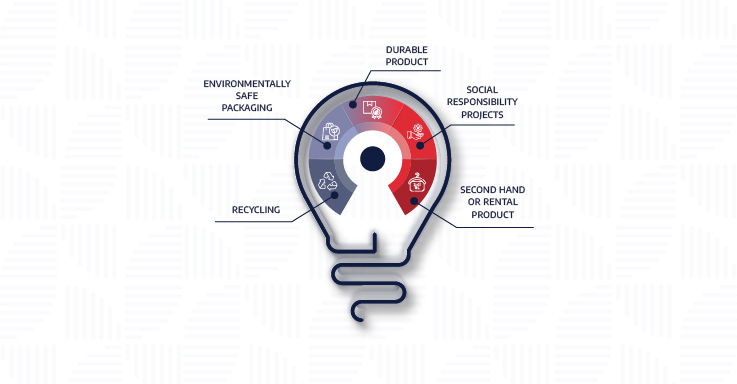As you know, protecting nature is the duty of every person in the world. Famous brands are doing a number of things in this regard to be an example not only to their society, but also to the whole world. These famous brands often adopt strategic marketing steps such as circular economy and sustainable production to prevent the increase of waste in nature.
Some important points they make in this regard are as follows:
1. Recycle and reuse: Brands are launching programs that encourage customers to recycle. For example, a traditional strategy is to offer discounts to customers who return old products, or to create new products by reusing these products.
2. Eco-friendly packaging: To reduce the use of plastic, they prefer eco-friendly packaging. This packaging is made using biodegradable or recyclable materials.
3. Sustainable product development: Brands focus on developing sustainable products by using materials that are less harmful to the environment in their production processes. These products are more durable, energy efficient and reusable.
4. Social responsibility projects: Brands organize social responsibility projects to raise awareness about nature conservation and waste management. These projects are used to strengthen brand image and increase social awareness.
5. Second-hand and rental models: Some brands aim to reduce consumption and extend the life of products by selling second-hand products to their customers or by offering product rental (rental) services.
But what important steps are famous brands taking in this regard?
1. Patagonia: Outerwear brand Patagonia is a leader in sustainability. While manufacturing its products using recycled materials, it promotes the repair and reuse of old clothes with its Worn Wear program.
2. IKEA: IKEA, one of the giants of the furniture sector, applies the "Circular economy" approach. So, using recyclable materials, it offers customers the opportunity to bring back their old furniture and exchange it for new ones. It also reduces the use of plastic in packaging to reduce the environmental impact of its products.
3. Nike: Nike aims to achieve zero carbon emission and zero waste goals with its "Move to Zero" campaign. Nike manufactures products made from recycled materials, recycling old sneakers and using them in new products.
4. Unilever: Consumer products (food, beverage, cleaning and personal care products) brand Unilever aims to make its packaging completely recyclable by 2025 by integrating sustainability strategies into its business models. It also implements environmental initiatives such as reducing waste and optimizing water use.
5. Adidas: To reduce plastic waste, Adidas partnered with Parley for the Oceans to produce shoes made from recyclable ocean plastics. At the same time, it aims to switch to environmentally sustainable and cleaner materials in its production processes.
6. Elvis & Kresse
Known for bags, belts and accessories made from worn-out fire hoses from the London Fire Brigade, Elvis & Kresse transforms the materials into high-quality and stylish products. In addition, he donates a part of the income to charities.
7. Shaku
Shaku is a luxury brand that produces high-quality scarves and accessories featuring original artwork and designs. In keeping with the slow fashion movement, Shaku products are designed to last for generations. Waste is avoided by recycling waste materials and defective parts into new products. With its timeless designs, Shaku continues to transcend short-term trends.
8. Honest Ocean
Honest Ocean is a social enterprise that aims to reduce plastic waste in Indonesia and Southeast Asia. Collects, separates and recycles plastic waste. Recycled plastic is sold to manufacturers and ensures that plastics are reused in the economy. It also works to educate local communities about waste management.
These strategies help brands both meet their environmental responsibilities and build stronger and more lasting relationships with consumers. Global Management, in its turn, as a member of the UN Global Compact, has made commitments that serve "green" development in its main activity. By creating internal communication in a corporate environment, it reduces paper production and also recycles batteries. At the same time, in February of this year, he contributed to the greening of nature by participating in the tree planting campaign initiated by Global Media Group. In general, guided by the 10 main principles of the Global Agreement, attention to environmental issues and the promotion of "green" technologies will be increased.









